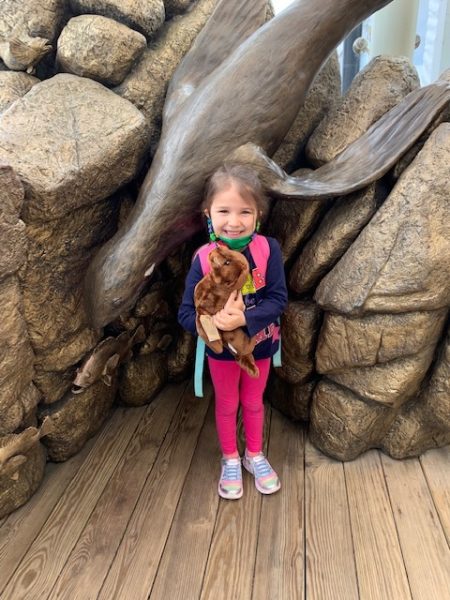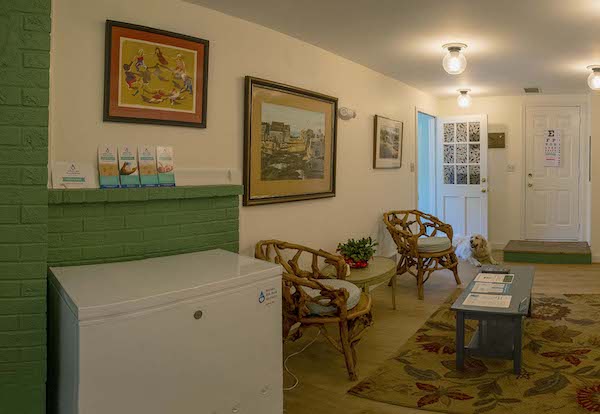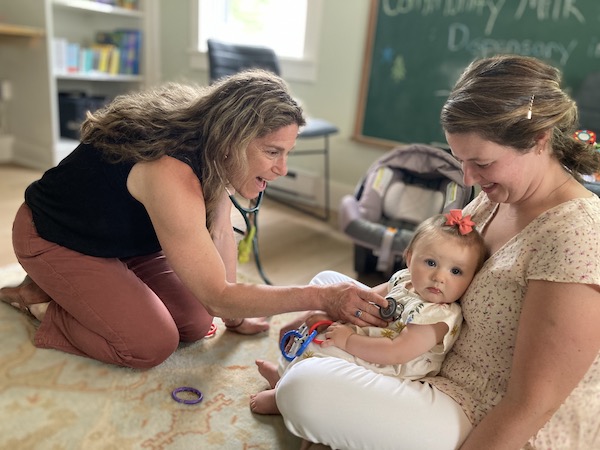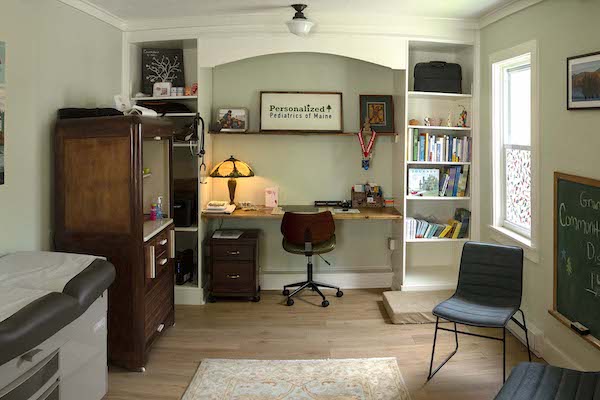Ali Kopelman loves what she does and she’s good at it, too. She’s a pediatrician in Portland, Maine, and until recently was part of a large practice. On average, she’d see 20 patients a day, but some days it was more like 30 or 40. She also had call responsibilities at the local hospital and even if she got called in at night, she still had to be in the office the next morning. It was fine when was she in her 20s, but more challenging as she nears 50.
There were more concerning issues, however, that made her seriously consider the path she was on. For instance, the practice switched to a call center system. Every incoming call went through the system, no matter which doctor’s office it was meant for, and she found herself constantly apologizing.
Patient dissatisfaction and I think deservedly so, was high because patients weren’t getting called back within hours. Often, they wouldn’t even get a call back the same day. My nurse, the medical assistant, and I spent all our time apologizing. It just felt like we were delivering bad care, and that it wasn’t going to change.
Dr. Ali Kopelman, pediatrician
And then, last August the decision was made to close a pediatric urgent care center she and another doctor had spent about seven years trying to build. They had hoped to expand but instead, it was closed.
It was a crushing blow, but it was really a culmination of things that made me take a step back and say, you know, I’m really unhappy. I’m spending a lot of time apologizing and I’m not happy. I was talking to some friends who gave this wonderful analogy of somebody who kept running into hardships and kept doing their job over and over again, and looked at God and said, why won’t you give me a sign and God’s like, I’ve given you 20!
It was the push she needed to look into another way of practicing medicine — one called direct primary care. She did a lot of research and talked to other physicians who practiced direct primary care. It was just the practice model she was looking for and she wasted no time opening up her new private practice Personalized Pediatrics of Maine.
It made total sense to me. You get X amount of patients and when you work the numbers, you can have enough time to see them, you have enough time to talk to them, you have enough time to really get to know them. And you can make a living. My goal is not to earn a lot of money but enough so that I can send my kids to college.
On the surface, direct primary care seems like the way doctors used to practice medicine, by themselves. A significant difference is that instead of paying the doctor directly for specific services or submitting to an insurance company, you pay a monthly subscription fee.
Dr. Kopelman’s monthly fees are:
- $120 from infancy to age two
- $100 ages two to six
- $80 ages six to 18
- $60 for college students
I think that’s pretty affordable. If I save someone with a high deductible insurance one urgent care visit, that’s almost a whole year’s subscription. They also have unlimited access to me. I have 40 patients right now, and I hope to carry a practice of between 200 – 250 children. You typically see 10% of your patients a week, which is holding true for me. If I reach my goal numbers and see 20 patients in a week, that’s fewer than I used to see in a day.
The fee covers most primary care services including clinical and laboratory services, care coordination, and comprehensive care management. Direct primary care providers don’t accept insurance or participate in government programs.
We are not advocating that patients should not have insurance, but rather that they should be able to receive basic primary care at an affordable price — and keep insurance (which is not health care) for true emergencies.
Dr. Kopelman also offers single visits for urgent needs
- Acute visit: $200
- Well Child Check: $300
- Sports/Camp Physical: $250
Linsey Beaulieu’s four children have been her patients for the past nine years, and Linsey says she has experienced not being able to get through to her office before and needing to make multiple trips to the walk-in clinic instead. When she heard that Dr. Kopelman was leaving to start her own practice, she decided to keep three children in the large practice and switch her 5-year-old daughter to the new practice.

The tricky part was that she has private insurance and it didn’t make sense financially to transfer all of the children, who are generally healthy. Her daughter, on the other hand, has high medical needs and so, Linsey decided it was worth paying the monthly fee for unlimited access.
Access is a huge thing for me, but even just having questions, being able to pick up my phone or send her a text or a message through her patient portal. She gets right back to me within an hour, usually minutes. She also checks in with me probably twice a week, and she’s been instrumental in coordinating care between my daughter’s providers because she does see a lot of specialists. She’s currently undergoing some treatments in Boston, and she has been kind of the glue that’s holding all of those providers together and bridging her providers up here with the provider she’s seeing in Boston, which has saved me a ton of time.
Linsey Beaulieu, parent
Speaking of time, the average length of an appointment is one hour, during which Dr. Kopelman tries to answer and anticipate as many questions as possible.
I think when families leave, they have so much more information, and they don’t have the same worries that you have if you leave and you don’t have answers to questions, especially with babies. I can do a lot of preparatory guidance ahead of time, so people aren’t left hanging, not knowing.

In addition to her pediatric practice, she also offers a couple of other services. She is a certified lactation counselor and in collaboration with the Mothers’ Milk Bank Northeast recently opened a milk depot/dispensary at her office. The only other nearby dispensary is in Lewiston. Finally, she also offers a fourth-trimester care package. You’ll find more information on the Personalized Pediatrics of Maine website.
Right now Dr. Kopelman is the only pediatrician practicing direct primary care in Maine, but she says it seems like every day another doctor decides to make the switch. She has no regrets that she took that step.
I love medicine again. It’s a joy to have the time to practice and really get to know families. I feel like I’m able to give much better care. I have also been able to advocate a lot more for my families, which I think is key. I’m able to go to IEP meetings, I can call their subspecialists, and push for answers, I can coordinate complex care which the system couldn’t do. I love being accessible as well, and the really cool thing is, no one has abused it. I’m not getting random texts. When I hear from people, it’s a true emergency or a real question that needs to be answered. And … I’m able to bring my dog, a trained and certified therapy dog, to work with me.



I’m an 82+ year old retired RN who has felt we needed to get back into your mode of practise for several years now.
My last visit to my PvP was the pita. I had an appt the week before but showed up 15 minutes late, told to make another appointment. Did that and Dr was 1.5 hours late, I was freezing, staff gave me 2_sheets to get warm with.
Nothing really got taken care of, he needs to consult with an MD. He’s fairly new PA from a hospital setting! 2 weeks today and I’ve heard nothing. See what I mean?
I agree 100% with comment above that medicine needs to go back to this model, where patients are people and not just numbers. My daughter as stated above sees Dr.Kopelman and we are Sooo thankful for her. I took my two boys back to her old practice for their well child checks a couple weeks ago. It was so frustrating. The whole 1.5 hours that I was sitting their past my kids appointment times has got me truly thinking it is worth switching all my kids just due to that aggravation. By the time the pediatrician came in to see my two year old he was so annoyed he was uncooperative with his visit, the provider spent less than 10 minutes in the room with both my boys combine. My youngest son also had an accident at a water park the other day where he hit his head, and was bleeding. This also made me think if he was seeing dr Kopelman I could have called her an had him seen. I truly believe this way of care is worth the money!!!